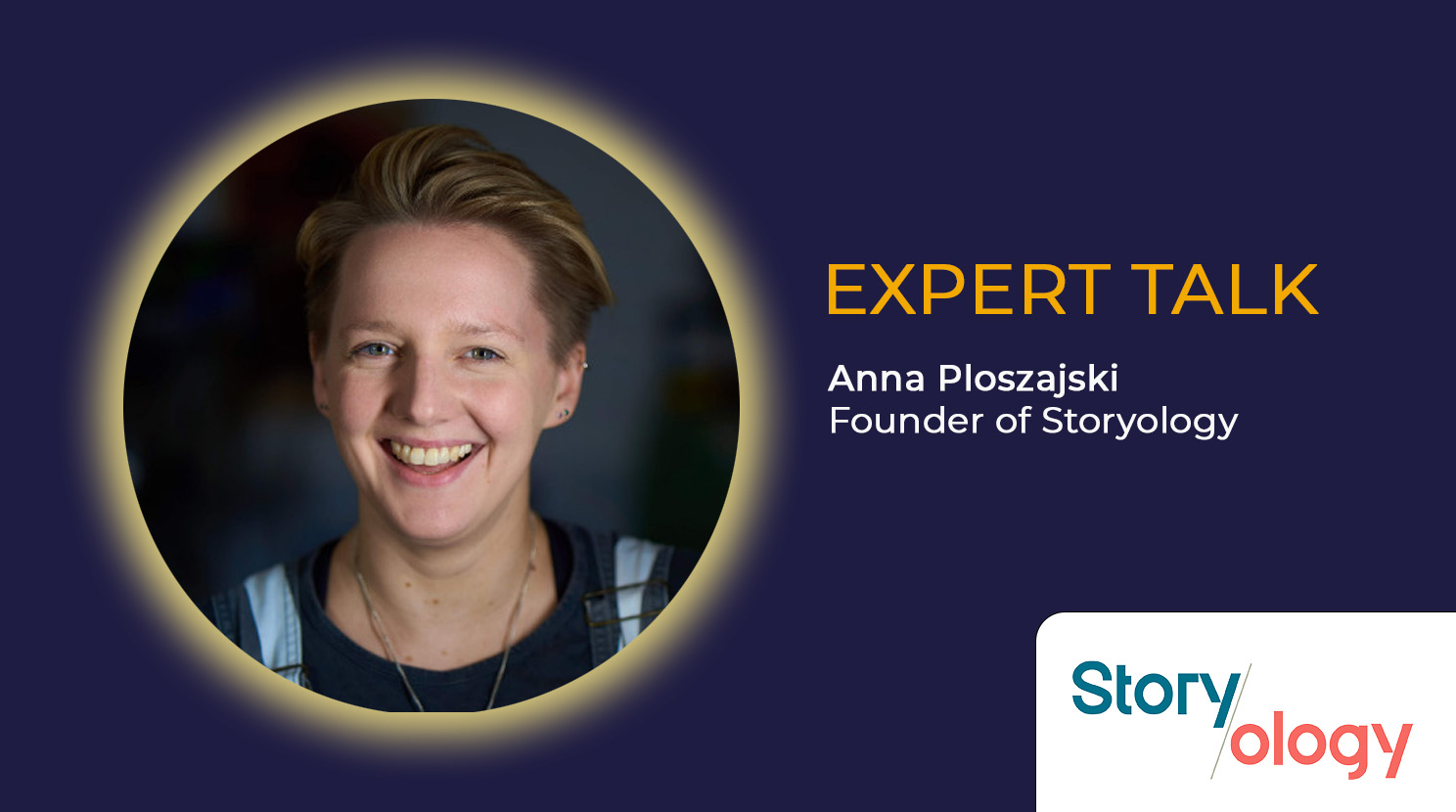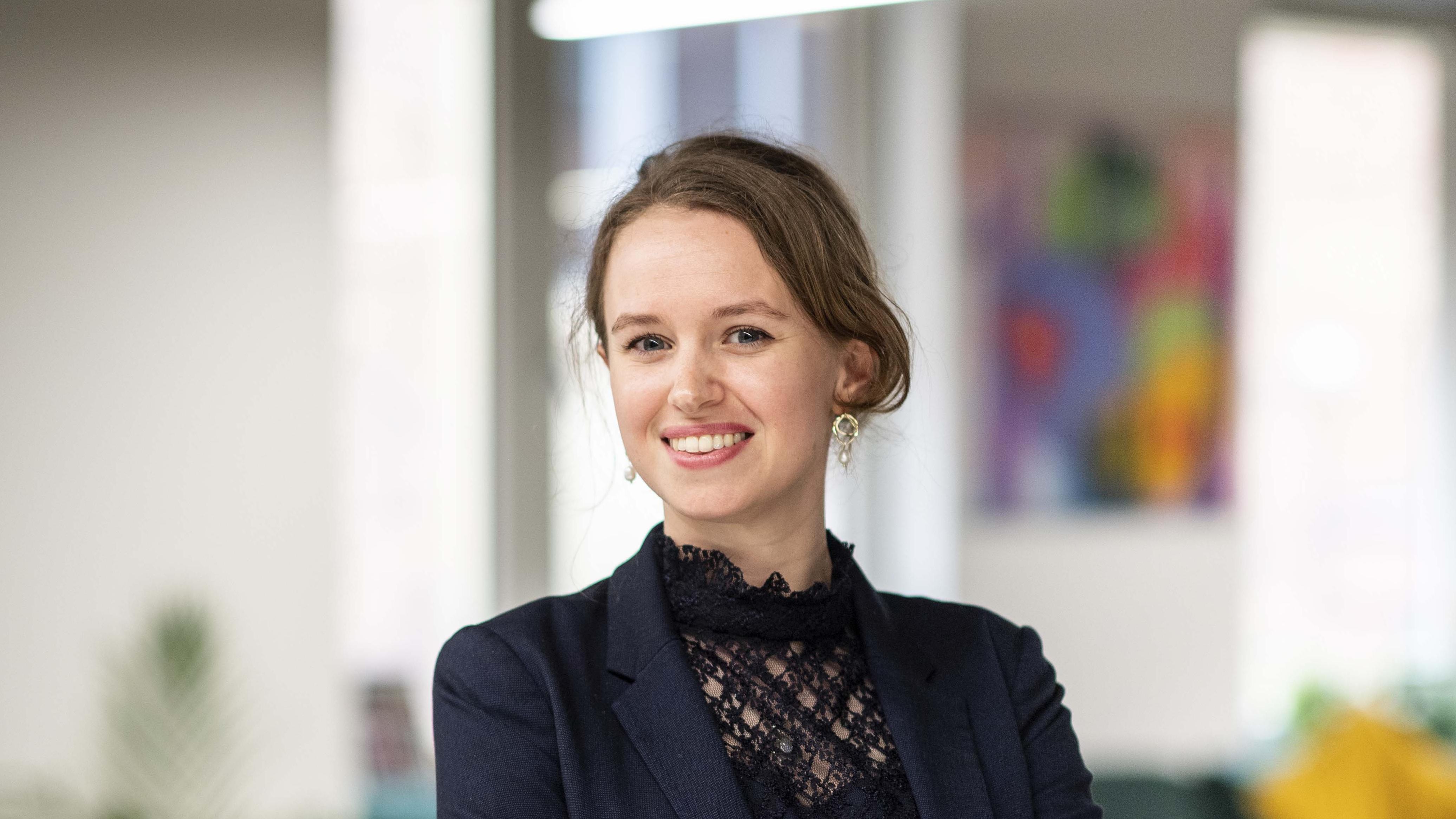
Anna works to support technical specialists and scientists to communicate effectively about their work – that translation from jargon into everyday impact that is so important in sustainability.
Stay informed with regulations, insights & events by joining our mailer
We have worked with many academics at Ever and Anna Ploszajski is one of our secret favourites – a materials scientist who loves getting stuck into how the world works in practice, not just in theory.
Anna works to support technical specialists and scientists to communicate effectively about their work – that translation from jargon into everyday impact that is so important in sustainability. We caught up with her to hear all about her new venture, Storyology, which takes storytelling to the next level for subject specialists.
Tell us how you’ve got to where you’ve got to
Hello Ever! My background was materials science and engineering in academia. So I spent a long time in academic research. And one thing that I found easy that I could see that my other peers found difficult was finding the story in the work I was communicating. I liked communicating with non-experts. I loved writing my PhD, whilst everyone around me was saying they hated writing. So I kind of realised, yeah, not only did I enjoy it, but it was also a big strength of mine as a scientist. I took a job as an in-house science writer – working with scientists who were brilliant at what they did, and really detail oriented, but who really struggled to see the bigger picture.
And this got you to storytelling?
Yes – storytelling as an approach was something that I found really useful as a method of being able to organise ideas. It helps us to imagine context setting, and helps us to focus on characters, motivations, challenges and also the narrative thread that feeds all those different things together. I sort of developed this storytelling toolbox made up of rules from the world of storytelling that could be useful when engineers or techy people or researchers are trying to communicate their work.
I love it – rather than “stakeholders”, we’re talking about “characters”. That feels much less formal and corresponds more with how businesses really think about their different stakeholder groups.
How far do you think sustainability stories and science stories work together?
One key way that storytelling is relevant to sustainability is that when we talk about sustainability, we talk about having an impact or making a change. In almost all stories there is some change. Something gets upset, introduced or transformed. The characters of the world are different at the end than at the beginning. What happened in the middle of that that helped the change to happen? So then you’re thinking about small incremental changes that add up to a big change.
The other element is that most stories are exploring a new world through asking a hypothetical question. All stories are predicated on a hypothesis – we call it the “inciting incident” or “what if” question. The story explores the answer to that question.
So, what if we saw this change brought on by climate or nature? It sounds like it’s close to scenario analysis?
Yes, the simple story form of Q&A mirrors what we do in scientific research. We set out a hypothesis and then go off and answer questions around it. Narratives and stories are a series of cause and effect steps. You need an evidence base to back up your narrative, otherwise the explanation gets lost. So with stories around climate change or nature degradation, the population looks at the story, or the trajectory put forward by scientists and politicians and asks where’s the evidence? I like working with people to think through where the arrow of the plot should shine through, and where to insert supporting evidence.
Tell us about a typical Storyology workshop
They usually take the format of foundational story skills, followed by an applied workshop. The applications can be anything from giving presentations or writing for the public to podcasting and personal branding. My favourite way to work is with small groups to allow for lots of debate and discussion. My aim is always to turn the group into a cohort of storytellers; they should leave with an understanding of how to apply my storytelling toolbox to any future communications challenge.
You can read more here: Storytelling Foundations – Storyology
What do you like about working with the corporate sector?
My favourite thing about working with the corporate sector is the pace at which that world moves – much faster than academia! I also love the focus on measurable outcomes. Stories in the corporate sector generally need to have concrete resolutions at the end, whereas exploratory research is more likely to be best described as an ongoing narrative.
Some of my recent favourite projects include:
- a storytelling workshop for a large cosmetics company for a mixed group of their marketing team and their scientific R&D team, aiming to help them co-develop stories for both internal and customer-facing audiences;
- a pitching workshop for young STEM entrepreneurs to help them secure seed funding;
- a transferrable skills workshop for early career science researchers in Bristol aiming to help them identify pathways into industry; and
- a communications coaching course for two quantum physics professors hoping to get funding from a big foundation
Enjoyed this conversation? Let’s talk.
At Ever, we offer workshops designed to help you uncover valuable insights into your stakeholders’ interests and priorities on the climate crisis and broader sustainability topics. By harnessing these insights, we can help you shape impactful sustainability strategies and drive meaningful, actionable change within your organisation.

